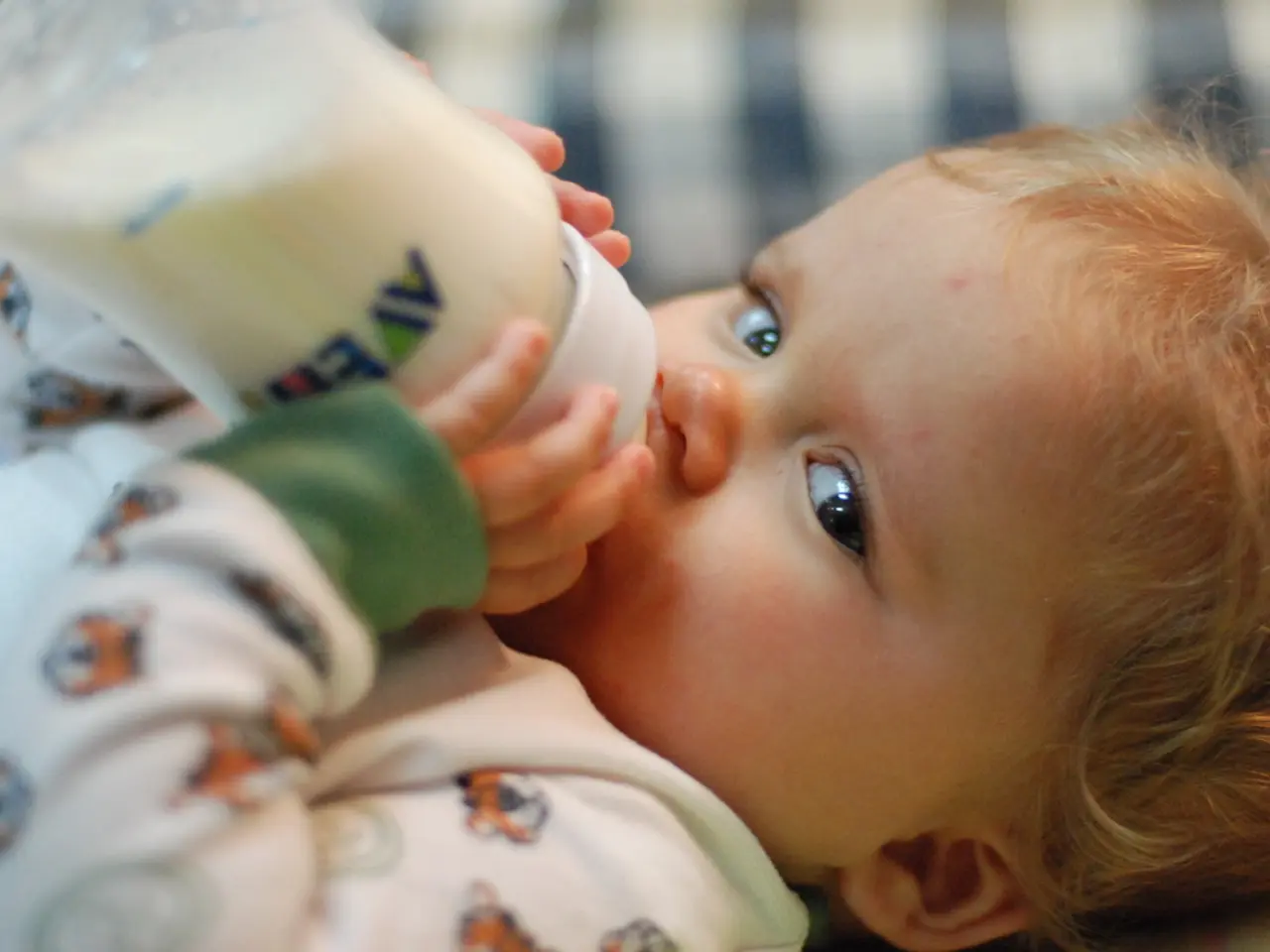Nurturing Baby's Appetite During Journeys: Meals Away from Home
Feeding a Baby While Traveling: A Comprehensive Guide
Traveling with a baby can be an exciting adventure, but it also requires careful planning, especially when it comes to feeding. Here are some essential tips and strategies to ensure your little one's nutritional needs are met during your journey.
Breastfeeding
Regular breaks during car travel are important for breastfeeding and diaper changes. On planes, feeding during takeoff and landing can help alleviate ear pressure discomfort and soothe the baby to sleep.
Bottle-Feeding
When flying, pack milk or formula securely in a separate bag within your diaper bag. Remember to bring enough bottles and feeding supplies to last the journey, including clean bottles and sterilized nipples. Use insulated bags or coolers if needed to keep milk fresh, especially formula or expressed breastmilk.
Solid Foods
For babies who have started solids, pack easy-to-carry, mess-free foods such as pre-cut soft fruits, cereals, or purees in spill-proof containers. Don't forget to pack wipes and bibs to handle cleaning on the go. For longer trips, consider traveling with a portable spoon and small bowls.
General Feeding Tips
Maintain familiar feeding routines as much as possible to comfort your baby and minimize disruption to their schedule. If traveling across time zones, gradually adjust mealtimes before departure to help your baby adapt and reduce hunger/sleep schedule mismatches.
Travel Essentials
Bring essential feeding supplies such as bibs, burp cloths, sterilizing wipes or equipment, a portable bottle warmer if needed, and enough clean bottles or breastfeeding covers. A small cooler or insulated bag can be useful for keeping homemade purees, cut fruits, and snacks fresh during your journey.
Practical Advice
Investing in a foldable, portable highchair or booster seat can provide a comfortable and secure spot for your baby to eat in restaurants, saving you from logistical challenges. Scout out baby-friendly spaces for feeding breaks, whether it's a cozy corner in a café or a dedicated nursing room at an airport.
Special Considerations
If your baby experiences digestive issues such as constipation or diarrhea, ensure they stay hydrated by offering water or milk regularly and opt for easily digestible foods. Preparing homemade meals for your baby while traveling guarantees freshness and quality, allowing you to cater to their specific tastes and dietary needs.
Preparation is Key
Traveling with a baby requires careful planning and preparation, particularly for feeding needs. Research the destination's regulations on carrying baby food and milk before the trip. Stock up on baby food, formula, and snacks before the trip, and don't forget to consult a pediatrician to discuss any specific health concerns or conditions your baby may have before embarking on a journey.
By combining consistent routines with practical supplies and breaks, feeding your baby during travel can be managed smoothly whether breastfeeding, bottle-feeding, or introducing solid foods. Share your tips, tricks, and memorable moments in the comments section with fellow parents seeking guidance on feeding while traveling with their little ones.
- When car traveling, regular breaks are crucial for breastfeeding and diaper changes.
- On planes, feeding during takeoff and landing can help alleviate ear pressure discomfort and soothe the baby to sleep.
- When flying with a baby, pack milk or formula securely in a separate bag within your diaper bag, and remember to bring enough bottles and feeding supplies to last the journey.
- For babies who have started solids, pack easy-to-carry, mess-free foods such as pre-cut soft fruits, cereals, or purees in spill-proof containers.
- Maintaining familiar feeding routines can comfort your baby and minimize disruption to their schedule.
- In restaurants, a foldable, portable highchair or booster seat can provide a comfortable and secure spot for your baby to eat.
- To cater to your baby's specific tastes and dietary needs, prepare homemade meals for your baby while traveling.





